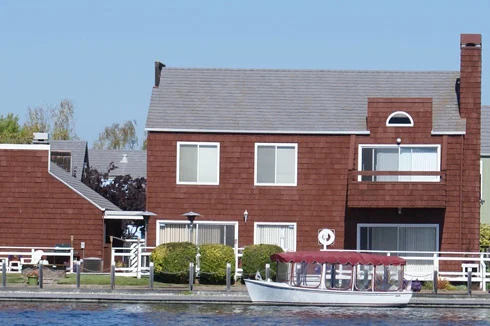- Look at all your mortgage options before choosing a specific type of loan.
- Consider how long you plan to remain in your home, before deciding on the loan product.
Is a HELOC or Home Loan Mortgage Refinance Right For You?
if you are considering borrowing against your home's equity, then you have two main options. one option is to do a cash-out refinance of your current mortgage. the other options is to take out a second mortgage, either a home equity loan (hel) or a home equity line of credit (heloc). depending on your particular situation, one option may be better for you than the other.
you can receive a no-cost, no obligation mortgage quote from one of bills.com's pre-screened lenders.
cash-out refinancing
a cash-out refinance is when you refinance your mortgage and increase the principal amount you are borrowing. as opposed to a rate and term refinance, where all you lower is the interest rate on your loan, a cash-out refinance lowers your equity stake, converting your equity into cash that you can use for a variety of personal needs.
a cash-out refinance usually has a lower interest rate than you will find on home equity loans, but you want to look at the costs. if you borrow more than 80% of your home's value, you usually are required to pay private mortgage insurance, so factor that into your decision. if you have had your mortgage long enough that you are paying more principal than interest each month or if you currently have a great interest rate, it may not make sense to refinance your mortgage. in those cases, you should look carefully at a home equity loan.
home equity loan
home equity is the value of your home less what you owe on it. essentially, it is your stake in your home. a home equity loan borrows against your equity stake. it is a second mortgage, a separate loan you take out in addition to your mortgage. closing costs are often lower on a home equity loan than on a cash-out refinance. interest you pay on the home equity loan is usually tax deductible. home equity loans are a good choice if your first mortgage has pre-payment penalties that make refinancing it too expensive.
there are two types of second mortgages, hels and helocs. the main difference is that a hel gives you a fixed amount of cash that you pay back at an agreed upon interest rate and term. a heloc is a line of credit that you use as you see fit, paying on the balance that you draw on.
which is best?
there are many reasons you may want to borrow against your home's equity, such as increasing your home's value with a home improvement project, capitalizing a small business, paying for necessary medical treatment, or paying for college for your child. think about why you need the money and how long you think it will take you to pay it back. also, think about how long you plan to stay in your home. when you are calculating the total costs you will pay for the loan, it is going to take you a certain amount of time to recoup your costs. if you sell your home before you recoup your costs, the money that it looks like you are saving by getting a lower rate ends up dropping.
a cash-out refinance may cost you more money in interest charges than a home equity loan, even if you borrow at a lower rate, if you take out a home equity loan for a shorter term. make sure to consider what size monthly payment you can afford and if you are comfortable paying a larger total interest in exchange for lower monthly payments and lower interest rates.
debt consolidation loans
if you are interested in debt consolidation, you may be able to get a lower interest rate with a cash-out refinance, but you lengthen the amount of time over which to pay off your debt. you might want to look into a home equity loan with a short term, as long as you make sure that you can afford the monthly payment. perhaps you may not need to borrow additional money at all? you may solve your debt problem by working on a disciplined family budget and working to pay off your highest interest debt more aggressively, reducing your total interest costs over the long term.
remember, whether you opt for a cash-out refinance or a home equity loan, any time that you touch your home equity you take on risks. if you ever are unable to pay your loans as agreed, you risk losing your home.
